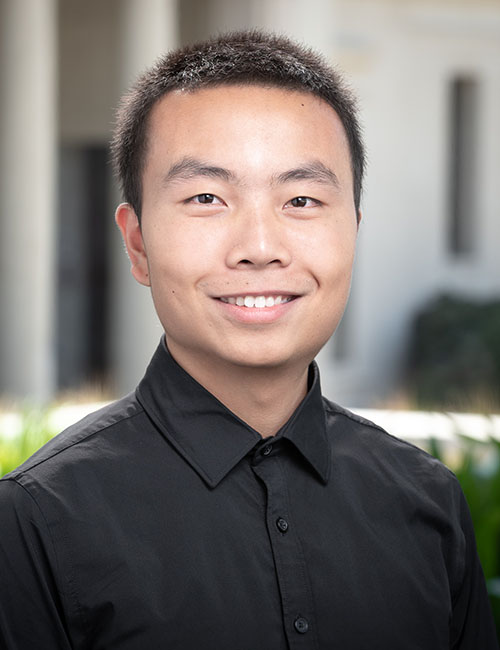Occidental exposed Michael to the joy of research, helping him along the path to a doctoral program in physics. He hopes to apply his research and technical skills to solve a wide range of problems.
Degree Program: physics doctorate
Why did you choose your Ph.D. program?
The University of Maryland at College Park (UMD) has one of the nation’s largest physics departments according to degree statistics reported by the American Institute of Physics. Correlated with those statistics is the program’s rare feat of supporting nearly every active area of physics research, not to mention the abundance of collaboration with neighboring computer science and engineering departments. I chose UMD to gain exposure to these varied opportunities for impactful dissertation research and to learn from scholars at the frontiers of scientific inquiry and emerging technologies. Since I arrived last fall, I’ve connected with graduate students and postdocs working in areas ranging from complex networks to gravitational theory and quantum computing. UMD is also specifically a powerhouse for quantum information research, an area within which I’m currently trying out a collaborative project with an electrical engineering group on experimental quantum photonics.
My graduate program has a diversified network of alumni outside of academia. Before I enrolled, I contacted multiple recent UMD graduates working in science policy and in private sector firms such as Booz Allen Hamilton. They corroborated UMD’s account that its physics graduates not only take on a wide array of non-academic positions, but also regularly apply skills developed during their graduate program in their roles at various government agencies, consulting firms and tech companies.
How did Oxy prepare you for graduate school?
As the first person in my family to attend college, my participation in Oxy’s undergraduate research program materialized a possible path through graduate education and toward a career in research. By submitting funding proposals to the Undergraduate Research Center, I learned to contextualize research questions and offer a thorough approach for tackling them. In the lab, I picked up enough practical bits of coding to run simulations at a remote supercomputing cluster, to which my research advisor, Dr. Janet Scheel, graciously (and rather daringly) requested access on my behalf.
By submitting funding proposals to the URC, I learned to contextualize research questions and offer a thorough approach for tackling them.
At the end of each summer research program, I practiced encapsulating months of lab work into minute-long sets of program notes aimed at different audiences. Presenting in front of familiar and encouraging crowds at these in-house conferences also boosted my confidence for regional and national conferences. An unexpected benefit of my research experience, as I learned from the Career Center and Fellowship Office, was that I became a competitive candidate for several national fellowships. Although I was not selected for them, the self-reflection demanded by the application process ushered me down the graduate school path with much greater conviction.
What do you hope to do after you complete your degree?
A lot can happen in the next half-decade. In general, I hope to be able to apply my research and technical skills to solve a wide range of problems, so I am open to exploring opportunities outside of academia.

